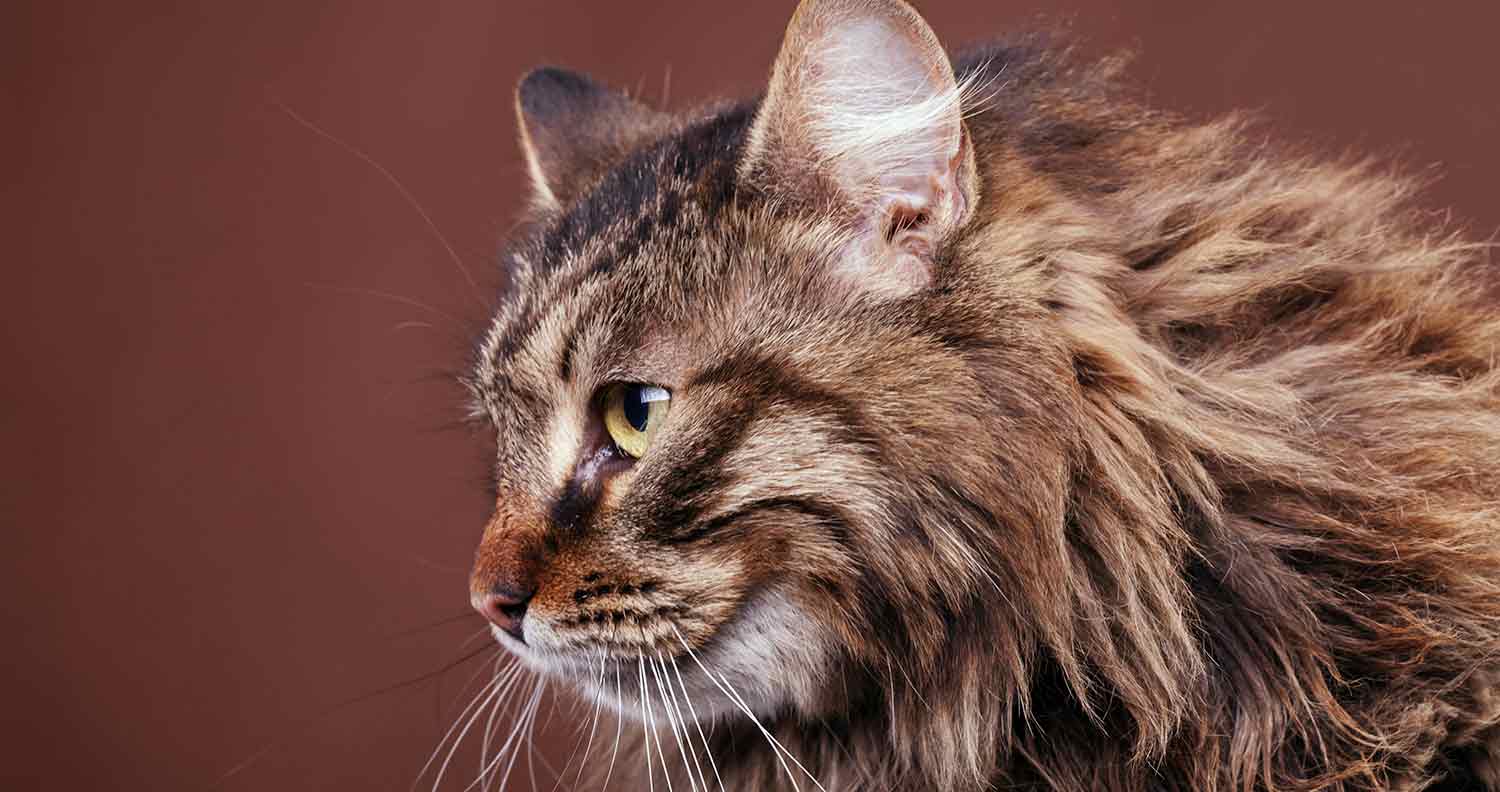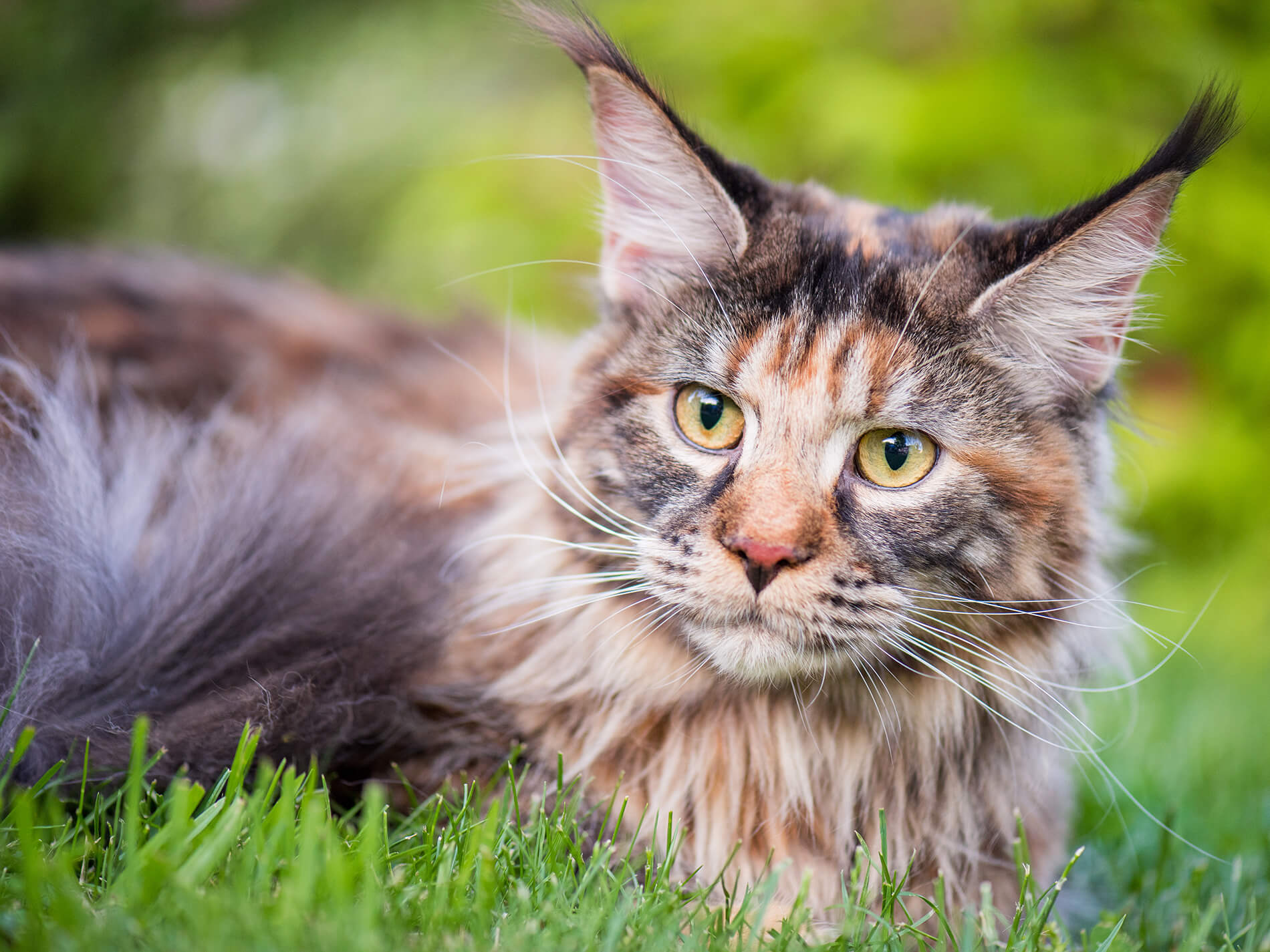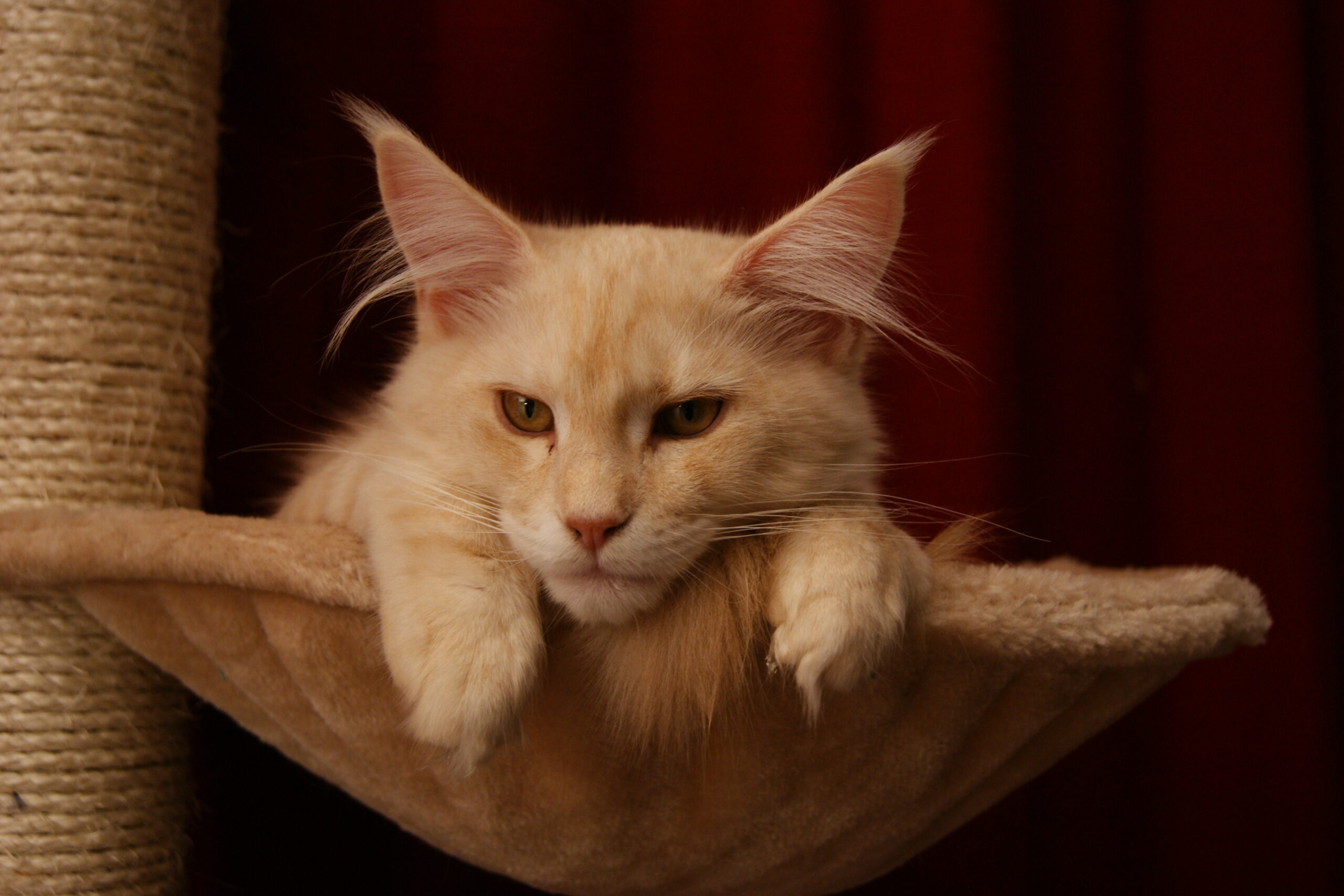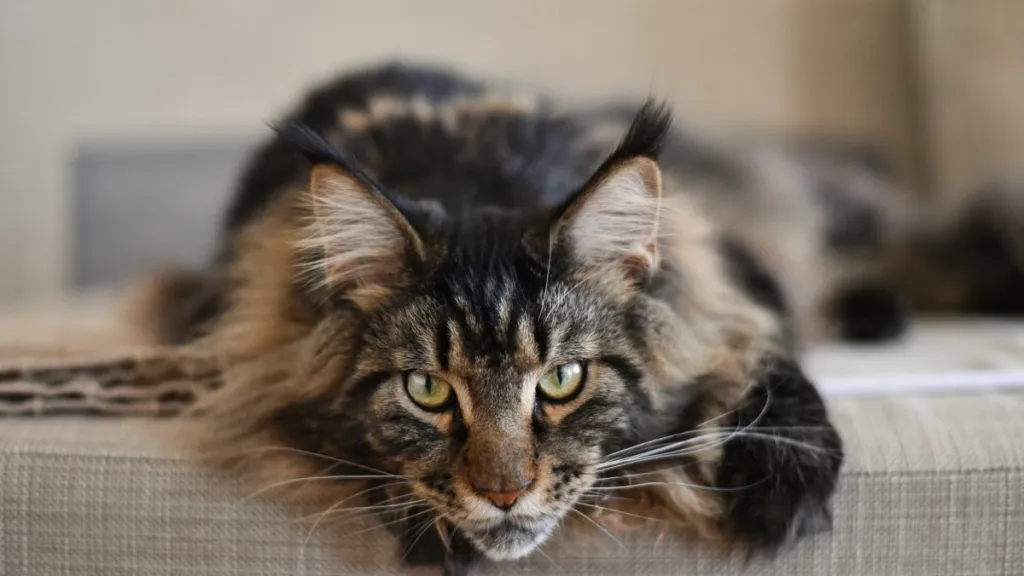Factors Influencing Maine Coon Lifespan
Grooming and Hygiene Practices

Maine Coons are known for their large size and distinctive physical appearance, but their lifespan is also a topic of interest among cat enthusiasts. Factors that influence lifespan in Maine Coons include genetics, nutrition, environment, and overall health.
Genetics play a significant role in determining the lifespan of individual Maine Coon cats. Some breeds are prone to certain genetic disorders or diseases that can affect their lifespan. For example, Maine Coons are at risk for hypertrophic cardiomyopathy, a heart condition that can lead to premature death if left untreated.
Nutrition is another key factor in determining the lifespan of Maine Coon cats. A well-balanced diet that meets their nutritional needs is essential for maintaining their overall health and wellbeing. Feeding high-quality food that contains necessary nutrients, vitamins, and minerals can help promote longevity.
Environment also plays a crucial role in determining the lifespan of Maine Coons. Exposure to stressors such as loud noises or other pets can negatively impact their health and wellbeing. Providing a safe and comfortable living environment with adequate space for exercise and play is essential for promoting longevity.
Grooming is another important aspect of maintaining the health and wellbeing of Maine Coon cats. Regular grooming helps remove loose hair, reduces shedding, and prevents hairballs from forming. Additionally, grooming provides an opportunity to inspect for any signs of illness or disease, such as changes in appetite, vomiting, or diarrhea.
Hygiene practices also play a crucial role in maintaining the health and wellbeing of Maine Coon cats. Regular litter box cleaning and maintenance is essential to prevent the buildup of bacteria and odors that can lead to illnesses. Additionally, providing adequate ventilation and fresh air in the home can help reduce the risk of respiratory problems.
Regular veterinary check-ups are also necessary to monitor the health and wellbeing of Maine Coon cats. Regular check-ups allow veterinarians to detect any potential issues early on and provide recommendations for maintaining their overall health and wellbeing. Additionally, regular check-ups can help prevent illnesses from becoming more serious and reduce the risk of premature death.
Proper grooming is essential to maintaining the overall health of a Maine Coon, and research suggests that regular brushing can help reduce shedding and prevent hairballs from forming in the stomach.
Maintaining a long and healthy life for a Maine Coon cat depends on various factors.
The first factor is genetics, with some Maine Coon parents being bred to be longer-lived than others.
Proper nutrition also plays a crucial role in extending the lifespan of a Maine Coon. A well-balanced diet that includes essential nutrients such as protein, vitamins, and minerals helps maintain the overall health of your cat.
Genetic diseases can also impact the lifespan of a Maine Coon, with certain breeds being more prone to specific conditions such as hypertrophic cardiomyopathy (HCM) or hip dysplasia.
The environment in which your Maine Coon lives is another important factor. A safe and comfortable living space, including regular access to clean water and a balanced diet, can contribute to their longevity.
Regular veterinary check-ups are also necessary to monitor the overall health of your cat and detect any potential issues early on.
In addition to genetic factors and environmental influences, proper grooming is essential to maintaining the overall health of a Maine Coon. Research suggests that regular brushing can help reduce shedding and prevent hairballs from forming in the stomach.
Here are some tips for promoting good health through grooming:
Cat owners should brush their Maine Coons regularly, ideally 1-2 times a week, to remove loose hair and distribute skin oils.
This can help reduce shedding and prevent hairballs from forming in the stomach, which can be a fatal condition if left untreated.
Other factors that contribute to the longevity of Maine Coons include access to regular exercise and mental stimulation. Engaging your cat in play or providing puzzle toys can help keep them active and engaged throughout their lives.
Lastly, maintaining a close relationship with a trusted veterinarian is crucial for ensuring your Maine Coon receives the necessary care and attention throughout its life.
By considering these factors and taking proactive steps to maintain your cat’s health, you can enjoy many happy years with your beloved companion.
Genetic Predispositions and Health Issues
Maine Coons are known for their majestic size, stunning coat patterns, and endearing personalities. However, like all breeds, they can be prone to certain health issues that may impact their lifespan.
Factors Influencing Maine Coon Lifespan:
Genetics: As with any breed, genetics play a significant role in determining the lifespan of a Maine Coon. Responsible breeding practices and selection for healthy parents can help minimize inherited health issues.
Environment: The living conditions and lifestyle of a Maine Coon can significantly affect their lifespan. Factors such as diet, exercise, and exposure to diseases or toxins can all impact their overall health.
Health Issues:
Maine Coons are generally a healthy breed, but they can be prone to certain health issues that may reduce their lifespan. Some of the most common health problems in Maine Coons include:
Feline Hypertrophic Cardiomyopathy (HCM): This is a heart condition that can lead to heart failure and death. Responsible breeding practices have reduced the incidence of HCM in Maine Coons, but it remains a potential issue.
Spinal Muscular Atrophy (SMA): SMA is a genetic disorder that affects the muscles and can cause weakness and paralysis. It is more common in Maine Coons than other breeds and can lead to premature death if left untreated or poorly managed.
Osteochondritis Dissecans (OCD): OCD is a joint condition that can cause pain, arthritis, and lameness. It is relatively rare in Maine Coons but can have a significant impact on their quality of life and lifespan.
Catnip Toxicity: Catnip contains a chemical called nepetalactone, which can cause symptoms such as drooling, vomiting, and diarrhea in cats. While not usually fatal, catnip toxicity can lead to dehydration and electrolyte imbalances if left untreated or poorly managed.
Hairballs: Maine Coons are known for their long, flowing coats, which can easily mat and form hairballs. If not regularly groomed, these hairballs can cause digestive blockages and potentially fatal complications.
Obesity: Overfeeding or poor dietary habits can lead to obesity in Maine Coons, which is a significant risk factor for various health issues, including diabetes, arthritis, and cardiovascular disease.
Dental Problems: Maine Coons are prone to dental problems such as periodontal disease, tooth resorption, and abscesses. Regular dental care and veterinary check-ups can help prevent these issues from developing.
Infectious Diseases: As with all cats, Maine Coons can be susceptible to various infectious diseases, including feline leukemia virus (FeLV), feline immunodeficiency virus (FIV), and cat scratch disease. Vaccination and regular veterinary check-ups can help prevent or manage these conditions.
By understanding the genetic predispositions and health issues that can impact a Maine Coon’s lifespan, potential owners can better prepare themselves for the responsibilities of caring for one of these magnificent felines.
Studies conducted at universities such as Cornell University have identified potential genetic predispositions in Maine Coons to conditions like hip dysplasia and spinal muscular atrophy.

The lifespan of a Maine Coon, one of the most popular domesticated breeds of cat, can vary depending on several factors.
While these majestic felines are known for their robust health and impressive longevity, certain conditions can affect their lifespan.
Genetic Factors
The genetic makeup of a Maine Coon plays a significant role in determining its lifespan. Research has identified potential genetic predispositions to certain health conditions, such as:
Hip dysplasia: a condition where the hip joint does not form properly, leading to arthritis and mobility issues.
Spinal muscular atrophy: a genetic disorder that affects the nerves controlling voluntary muscle movement, resulting in muscle weakness and wasting.
These conditions can be inherited from a cat’s parents and may affect its lifespan. However, responsible breeding practices and regular health checks can help identify potential issues early on.
Environmental Factors
In addition to genetic predispositions, environmental factors also play a crucial role in determining a Maine Coon’s lifespan. Some of the key factors include:
Nutrition: A balanced diet rich in essential nutrients is vital for maintaining overall health and longevity.
Exercise: Regular exercise helps maintain physical fitness, preventing obesity and related health issues.
Healthcare: Regular veterinary check-ups and preventative care can help identify potential health issues early on, reducing the risk of chronic diseases.
Socialization: Social interaction with humans and other pets can help reduce stress and promote overall well-being.
Aging-Related Factors
As Maine Coons age, they may experience physical changes that affect their lifespan. Some of the key factors include:
Kidney disease: Age-related kidney damage can lead to chronic kidney failure.
Cancer: Maine Coons are prone to certain types of cancer, such as lymphoma and skin cancer.
Awareness of these potential health issues can help pet owners provide the best possible care for their beloved felines.
Maine Coon Lifespan Statistics and Life Stage Breakdown
Kittenhood (0-1 Year)
Maine Coons are one of the longest-living domesticated cat breeds, with an average lifespan ranging from 12 to 15 years. However, with proper care and nutrition, some individuals have been known to live up to 18 years or more.
The lifespan of a Maine Coon can be broken down into several life stages, each with its own unique characteristics and needs. Here’s an overview of the kittenhood stage:
Kittenhood (0-1 year)
During the first year of their life, Maine Coon kittens undergo rapid growth and development. They are born blind and deaf, but begin to develop their senses within a few weeks. At this stage, they rely heavily on their mother for nutrition and care.
Newborn Maine Coon kittens typically weigh around 3-4 ounces (80-120 grams) at birth. As they grow, their weight increases rapidly, with most kittens reaching double their birth weight by the time they are three weeks old.
Maine Coon kittens begin to transition from milk to solid food between four and six weeks of age. Their diet should consist of high-quality kitten food that is rich in protein and calories. At this stage, they require regular feeding to support their growth and development.
By the time Maine Coon kittens are eight weeks old, they begin to wean off their mother’s milk completely. This marks a significant milestone in their life as they become more independent and start to assert themselves within the litter.
The first year of a Maine Coon kitten’s life is crucial for establishing good habits and laying the foundation for optimal health and longevity. Proper nutrition, regular veterinary care, and plenty of love and attention are essential during this stage.
During the first year, a kitten requires regular vaccinations and checkups with a veterinarian to ensure proper growth and development.
Maine Coon lifespan can vary based on several factors, including genetics, diet, lifestyle, and health conditions. On average, a Maine Coon cat lives for around 12-15 years. However, with proper care and attention to their health, some Maine Coons have been known to live up to 18-20 years or more.
Understanding the different stages of a Maine Coon’s life can help you provide the best possible care for your cat throughout its lifespan. Here is a breakdown of the different life stages of a Maine Coon:
Newborn (0-4 weeks)
At this stage, kittens are completely dependent on their mother for food and warmth. During this period, it’s essential to keep an eye on the kitten’s weight, ensuring they gain about 1 ounce per day.
Weaning (4-8 weeks)
The weaning process typically begins around 3-4 weeks of age, where kittens start eating solid food. This is a crucial period for socialization, as the kitten learns to interact with its environment and other animals.
Adolescence (2-6 months)
During this stage, kittens undergo rapid growth and development. They will start to develop their adult coat, which may take up to two years to fully mature. Regular checkups with a veterinarian are vital during this period to monitor the kitten’s growth and ensure proper vaccinations.
Young Adulthood (6 months-1 year)
This is an essential stage where kittens become more independent, but still require regular care and attention from their owner. During this period, it’s crucial to establish a routine for feeding, exercise, and veterinary checkups.
Adulthood (1-10 years)
Maine Coons typically reach adulthood between 1-3 years of age. They will continue to grow slowly during this stage but will require regular dental care, grooming, and vaccinations.
Seniorhood (10+ years)
At around 10 years or older, Maine Coons enter the senior stage of their life. This is where age-related health issues may arise, such as kidney disease or arthritis. Regular veterinary checkups are essential to monitor your cat’s health and address any concerns early on.
Overall, maintaining a Maine Coon‘s overall health throughout its lifespan requires attention to regular vaccinations, dental care, grooming, and providing a balanced diet and exercise routine.
Adulthood (1-15 Years)
Maine Coons are known for their impressive size and striking appearance, but how long do these majestic felines live? Their average lifespan can vary depending on several factors, with proper care and nutrition contributing significantly to a long and healthy life.
On average, a _Maine Coon’s lifespan_ typically ranges from 12 to 15 years, although some have been known to live up to 18 years or more. The key to achieving this remarkable longevity lies in understanding the various life stages that a Maine Coon cat undergoes and providing optimal care during each period.
Adulthood (1-5 Years): During this initial stage, Maine Coons develop physically and mentally. They require plenty of food, water, and attention to grow strong and healthy. Regular veterinary check-ups are crucial for monitoring their growth and addressing any potential issues early on.
Early Adulthood (6-10 Years): As they enter this stage, Maine Coons begin to reach their full size and weight. Their energy levels remain high, making them prone to engaging in playful activities. It’s essential to continue providing a balanced diet and adequate exercise opportunities, such as playtime with toys or climbing structures.
Middle Adulthood (11-13 Years): At this point, Maine Coons have reached their physical prime and are still active but may start to slow down slightly. Their weight and muscle mass remain stable, while their coat continues to shine with minimal grooming required. Regular health checks become even more critical during this stage as age-related issues begin to emerge.
Late Adulthood (14-15 Years): As Maine Coons enter the final stages of adulthood, they may experience a gradual decline in physical activity and mobility. Their coat may also show signs of aging, such as thinning or graying around the muzzle. It’s vital to provide comfortable living arrangements and prioritize their health, ensuring they receive necessary medical attention when required.
By understanding and catering to these life stages, you can help your Maine Coon live a long, happy, and healthy life. Proper care, attention, and love will ensure that this magnificent breed continues to thrive for many years to come.
As they reach adulthood, Maine Coons typically weigh between 1025 pounds and require less frequent veterinary visits.

The average lifespan of a Maine Coon cat is around 12-15 years, but with proper care and nutrition, some individuals have been known to live up to 18 years or more.
It’s essential to understand that the lifespan of a Maine Coon can be influenced by various factors such as genetics, diet, exercise, and health conditions.
The Maine Coon is generally considered a long-lived breed, with some cats living into their late teens or even early twenties.
To better understand the lifespan of a Maine Coon, it’s helpful to break down the different life stages of these felines:
Kittens (0-1 year): During this stage, kittens develop rapidly and require regular veterinary check-ups to ensure they’re growing and developing properly.
Adolescence (1-2 years): Maine Coon kittens typically reach full size between 12-18 months, but may continue to fill out until they are two years old. They begin to exhibit adult behavior during this stage.
Adulthood (2-7 years): At this point, Maine Coons have reached their prime and require less frequent veterinary visits. They typically weigh between 10-25 pounds and continue to thrive under proper care.
Middle Age (8-12 years): Maine Coons begin to slow down slightly in this stage, but still enjoy good health. Regular veterinary check-ups are crucial during this period to monitor their overall well-being.
Senior Years (13+ years): As Maine Coons enter their senior years, they may experience age-related health issues such as arthritis or kidney disease. Regular veterinary care and a healthy lifestyle can help them thrive in these final stages of life.
Seniorhood (15+ Years)
The lifespan of a Maine Coon cat can vary based on several factors, including genetics, diet, lifestyle, and health conditions.
Generally, the average lifespan of a domesticated feline, regardless of breed, is around 12-15 years. However, with proper care and attention to their specific needs, some Maine Coons have been known to live up to or even exceed 18 years.
The life stages of a Maine Coon can be broken down into several categories: Kittenhood (0-1 year), Adulthood (1-5 years), Middle Age (5-10 years), and Seniorhood (10+ years).
Kittenhood is the initial stage of development, during which the kitten grows rapidly and learns essential skills such as hunting and social interaction. This stage typically spans from birth to around 12 months.
Adulthood marks a period of physical maturity and reproductive readiness for most cats, including Maine Coons. They usually reach their full size between 1-3 years and continue to grow until they are around 4-5 years old.
Middle Age is characterized by the beginning of physical decline in some individuals but continued health and vitality in others. Their growth may slow down, and weight gain becomes more noticeable due to decreased muscle mass and metabolism changes. Typically, this stage starts between 5-10 years.
Seniorhood commences when a Maine Coon reaches an age of at least 15 or more years. As they enter this life stage, the cat will begin to experience physiological changes such as increased susceptibility to infections and age-related health problems like kidney disease, osteoarthritis, and cognitive decline.
Carefully monitoring your cat’s diet, maintaining a regular check-up schedule with the veterinarian, staying on top of preventative care measures (like flea control, dental cleaning, and parasite management), can all contribute positively to ensuring their quality of life as they grow older.
In their golden years, older Maine Coon cats may experience agerelated health issues such as kidney disease or cognitive decline.
The Maine Coon is a popular domesticated cat breed known for its distinctive physical appearance and friendly temperament.
One of the most common questions among Maine Coon cat enthusiasts is about their lifespan. On average, a healthy Maine Coon can live between 15 to 20 years.
However, with proper care and attention to their diet and health, some individuals have been known to live up to 25 years or more.
Here is a breakdown of the different life stages of a Maine Coon cat:
Overall, the lifespan of a Maine Coon cat can vary depending on several factors, including diet, lifestyle, and genetics. However, by providing them with proper care and attention, owners can help ensure that these beautiful cats live long, happy, and healthy lives.
- Best LeadsGorilla Alternatives for 2025 - April 19, 2025
- Best Coldlytics Alternatives for 2025 - April 19, 2025
- Best Brevo Alternatives for 2025 - April 18, 2025



